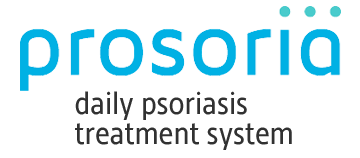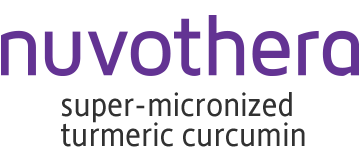What You Need to Know about Steroids
07 Oct 19

Psoriasis is a difficult condition to treat. It can flare up at various times and most psoriasis treatments only offer partial relief. Individuals feel trapped in their own bodies because of the ups and downs of this condition. Many individuals can't live normal lives because they're embarrassed and are always trying to cover up their condition.
And while steroids can be detrimental to our skin and body, research shows dermatologists still commonly prescribe them to treat this chronic skin condition. But, as temporarily helpful as they can be, corticosteroids come with a lot of side effects. This is why it's better to ask about alternatives to steroids for psoriasis treatment, like Prosoria.
Types of Steroids
The following three corticosteroids — prednisone, dexamethasone and methylprednisolone are the second most commonly prescribed systemic steroids for more severe psoriasis, according to WebMD. However, topical steroids are usually the most prescribed for mild to moderate psoriasis. Their main limitation is you can usually only use them for a short period of time to help control their damaging side effects.
Topical steroids, which you can apply as creams or ointments, are often prescribed for calming flare-ups, however, they can also cause flare-ups when you stop them. The three common types of steroids are:
1. Oral Steroids
Oral steroids you take by mouth. Most professionals believe oral steroids shouldn't have any role in psoriasis treatment (or psoriatic arthritis). In fact, if you're prescribed an oral steroid for your psoriasis, that's a mistake, according to Professor Dr. Mark Lebwohl, who is also chair of the Department of Dermatology in New York at the Icahn School of Medicine at Mt. Sinai. Systemic steroids withdrawal is a common triggering factor in the development of erythrodermic or pustular psoriasis, rare life-threatening types of the disease.
2. Topical Steroids
Topical corticosteroids are those you apply to your skin and have been used as a psoriasis treatment for a long time. Psoriasis creams are a good example. They're often used to treat psoriasis in individuals with less widespread disease and limited skin involvement. They're used in addition to other systemic therapies, phototherapy or topical therapies.
While topical steroids don't usually cause any severe side effects like oral steroids, you should still take caution. However, if they are used for weeks without a taking a break, they can cause permanent skin damage such as skin thinning, spider veins, stretch marks, loss of skin pigmentation and fragile skin that bruises and cracks easily.
- Only use topicals on the areas your doctor prescribed them for.
- Topical steroids greatly vary in strength from mild versions for thinner underarm, facial and genital skin to high-potency options use on legs and elbows. Don't use anything but mild topical steroids in the sensitive areas since it could cause atrophy or permanent thinning of the skin.
- Don't use topical steroids around your eye area since extended use around your eyes could cause cataracts and glaucoma.
3. Injected Steroids
Injected steroids are like they sound, injections, and like with oral steroids, should be used sparingly for psoriatic disease. They can be helpful in treating flare-ups in one or two joints in psoriatic arthritis. They offer quick, temporary relief as a plaque psoriasis treatment, but using them long-term and repeatedly can worsen joint damage and cause serious complications as oral steroids.
What are Steroids Used for in the Short Term?
Topical steroids are the most often used psoriasis treatment. They were originally derived from the adrenal gland-produced natural corticosteroid hormones. Corticosteroids control your body's inflammatory responses, among other essential functions which make them a good anti-inflammatory agent for reducing redness and swelling caused by psoriasis.
They also slow skin cell growth to help control scaling from skin build up and reduce skin thickness and itching. They come in various strengths.
Risk of Oral, Injectable and Topical Steroids
Using oral steroids long-term can cause:
- Bone fractures
- Osteoporosis
- Diabetes
- High blood pressure
- Heart disease
- Cataracts
- Increased risk of infections
- Acne
- Poor wound healing
- and other unwanted side effects
When you use topical steroids on large areas of skin long-term, or if they're potent, they can enter into your bloodstream and possibly cause the same adverse effects as oral steroids, particularly in children.
Long-term use of topical steroids can cause permanent skin damage.
Individuals need an effective, but safe option for psoriasis treatment and preventing flare-ups. However safe and effective products are lacking.
Prosoria is a non-prescription Daily Psoriasis Skincare Regimen — It’s Safe, Steroid Free, Once Daily, Natural, That You Can Use Every Day.
Prosoria is more than a product, it's a way to impact individual's lives positively. As you treat the physical symptoms of psoriasis effectively, it will help you gain back your self-confidence and feel better about your skin and yourself.
Prosoria is steroid-free, meaning there are no steroids in its ingredients. It combines natural pro-botanical and clinical strength ingredients that condition, treat, moisturize and exfoliate your skin. It's a complete treatment system that effectively relieves psoriasis symptoms like:
- Flaking
- Scaling
- Irritation
- Redness
- Itching
It also helps prevent recurrences, and many users tout it as the best cream and treatment system for psoriasis. Visit our website product page to learn more about Prosoria and if it's the right steroid-free psoriasis treatment for you.

